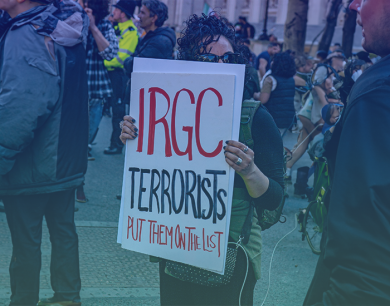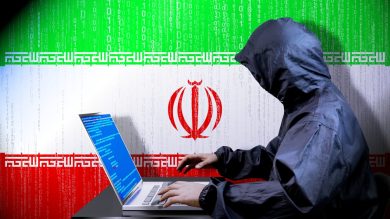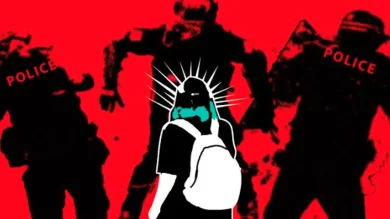The Islamic Revolutionary Guard Corps (IRGC) is one of the most influential and destabilizing forces in the Middle East. With its elite Quds Force, the IRGC has established a vast network of proxy groups across the region, supporting militias and terrorist organizations that prolong conflicts, weaken governments, and increase sectarian tensions. These proxies act as extensions of Iran’s foreign policy, allowing the regime to expand its influence while avoiding direct confrontation with regional and global adversaries. This article provides an in-depth analysis of how the IRGC’s proxy wars have destabilized key countries in the Middle East, the strategic objectives behind these operations, and the global security risks they pose.
1. The IRGC’s Strategy in Proxy Warfare
The IRGC’s approach to proxy warfare is rooted in a “forward defense” doctrine. By using proxies, Iran aims to counterbalance perceived threats from regional rivals such as Saudi Arabia and Israel, as well as from Western military forces.
A. Expanding Regional Influence
• Proxies allow the IRGC to exert control over strategic areas in the Middle East, such as Lebanon, Syria, Iraq, and Yemen.
• These groups promote Iran’s ideological narrative of “resistance” against foreign intervention.
B. Asymmetric Warfare
• Through proxies, the IRGC engages in asymmetric warfare, employing tactics such as terrorist attacks, guerrilla operations, and cyber warfare.
• This strategy reduces Iran’s direct military risk while destabilizing its adversaries.
2. Key Proxies Supported by the IRGC
The IRGC backs a variety of militias and armed groups throughout the Middle East. These proxies operate as both military forces and political entities, often undermining local governments.
A. Hezbollah (Lebanon)
• Hezbollah is the IRGC’s most powerful and well-organized proxy.
• It functions as both a military organization and a political party, with significant influence in the Lebanese government.
Impact:
• Hezbollah frequently engages in armed conflicts with Israel and supports Iranian military operations in Syria.
• It has destabilized Lebanon’s political system by prioritizing Iranian objectives over national interests.
B. Popular Mobilization Forces (PMF) (Iraq)
• The PMF is a coalition of predominantly Shia militias that emerged during the fight against ISIS.
• Many PMF factions are loyal to the IRGC and act as a tool for Iranian influence in Iraq.
Impact:
• These militias have challenged the authority of Iraq’s government and military, contributing to political instability.
• The PMF has been involved in attacks on U.S. military bases and other foreign targets in Iraq.
C. Houthi Rebels (Yemen)
• The IRGC provides weapons, training, and logistical support to the Houthi rebels in Yemen.
Impact:
• The Houthis have launched missile and drone attacks on Saudi Arabia and UAE infrastructure, escalating the regional conflict.
• The Yemen civil war has caused a severe humanitarian crisis, with millions facing famine and displacement.
D. Palestinian Islamic Jihad (Gaza)
• The IRGC supports Palestinian Islamic Jihad (PIJ), a militant group that carries out attacks against Israel.
Impact:
• PIJ and other armed groups contribute to the ongoing cycle of violence in the Israeli-Palestinian conflict.
• IRGC-backed groups complicate peace efforts and increase regional tensions.
3. The Impact of IRGC Proxy Wars on Regional Stability
The IRGC’s activities have far-reaching consequences for the political and security landscape of the Middle East.
A. Prolonging Conflicts
• By arming and funding proxies, the IRGC ensures that civil wars and sectarian conflicts remain unresolved.
• Prolonged conflicts have led to mass displacement, economic collapse, and the weakening of national institutions in countries like Syria and Yemen.
B. Sectarian Divisions
• The IRGC often exploits sectarian divides to strengthen its influence, particularly by supporting Shia militias in predominantly Sunni-majority regions.
• This strategy has deepened sectarian violence, fueling radicalization and terrorism.
C. Undermining Sovereignty
• The presence of powerful militias loyal to Iran undermines the sovereignty of nations like Iraq and Lebanon.
• These militias often operate outside the control of national governments, destabilizing political processes and governance.
4. The Global Security Threat
The IRGC’s proxy wars are not confined to the Middle East; they also pose a threat to global security.
A. Terrorist Activities Beyond the Region
• IRGC proxies such as Hezbollah have been linked to terrorist operations in Europe, Latin America, and Africa.
• These activities include drug trafficking, money laundering, and weapons smuggling to finance their operations.
B. Threats to Energy Security
• The IRGC and its proxies have targeted oil refineries, pipelines, and shipping lanes in the Persian Gulf.
• Attacks on Saudi Aramco facilities and oil tankers in the Strait of Hormuz have disrupted global energy markets.
C. Cyber Warfare
• The IRGC conducts cyberattacks on critical infrastructure, targeting banks, energy companies, and government agencies.
• These attacks pose a growing threat to global cybersecurity and economic stability.
5. International Responses to the IRGC’s Proxy Wars
Countries and international organizations have taken various measures to counter the IRGC’s influence.
A. Sanctions
• The United States and European Union have imposed extensive sanctions on the IRGC and its affiliates.
• These sanctions target financial networks, arms trafficking, and key leaders involved in proxy operations.
B. Military Countermeasures
• Israel and Saudi Arabia have conducted military strikes against IRGC-backed militias in Syria, Iraq, and Yemen.
• The U.S. military has responded to attacks on its personnel by targeting IRGC-aligned forces.
C. Diplomatic Efforts
• International bodies, including the United Nations, have called for peace negotiations and ceasefires in conflict zones influenced by the IRGC.
• Diplomatic pressure seeks to isolate Iran diplomatically and reduce its support for proxies.
6. The Path Forward
To mitigate the threat posed by the IRGC, the international community must adopt a comprehensive strategy.
A. Strengthening Sanctions Enforcement
• Sanctions should target front companies and financial institutions that fund IRGC operations.
• Coordination between countries is crucial to close loopholes and prevent sanctions evasion.
B. Supporting Civil Society
• Empowering human rights organizations and independent media can help expose the IRGC’s activities and counter its propaganda.
• Providing humanitarian aid can alleviate the suffering caused by prolonged conflicts.
C. Enhancing Regional Cooperation
• Countries in the Middle East must work together to reduce sectarian tensions and counter the influence of armed proxies.
• Security alliances can help improve intelligence-sharing and defense coordination.
Conclusion
The IRGC’s proxy wars have destabilized the Middle East, exacerbating conflicts, deepening sectarian divisions, and threatening global security. A coordinated international response that includes sanctions, diplomatic efforts, and military countermeasures is essential to limit the IRGC’s influence and promote peace in the region. Supporting civil society and human rights initiatives will also play a crucial role in countering the IRGC’s destabilizing agenda.
Join Our Newsletter!
Stay informed with the latest updates, news, and ways to take action in the fight for justice and global security. Sign up now to get updates delivered straight to your inbox!





